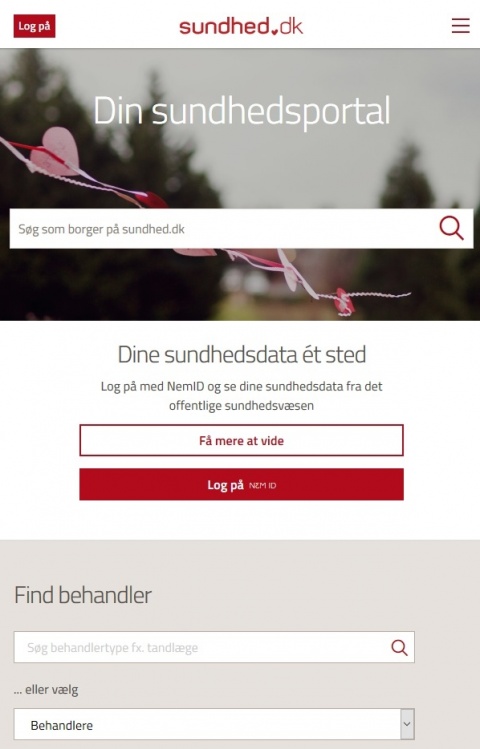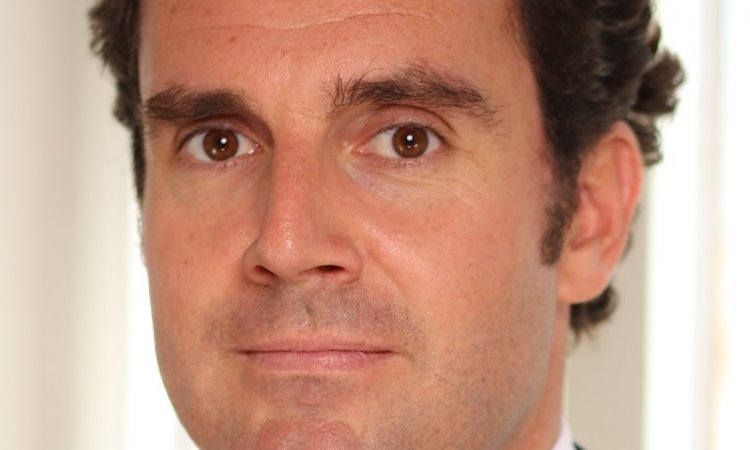Article • Long-term communication success in digitised healthcare
E-health in Denmark
The Danes have shown for some time how e-health can work successfully on a national level.
Report: Sascha Keutel
Source: Pixabay/dancepool
The health portal sundhed.dk (= health), initiated in 2001 and launched in 2003, is part of the public healthcare system. As of January 2018, the Danish national strategy describes sundhed.dk as a national access point for personal health-related data for hospitals, general practitioners and communities, said Morten Elbæk Petersen. As Director of the Danish health portal he was describing the portal’s functions during the ‘Emerging Technologies in Medicine’ (ETIM 2018) conference, in Essen this February.
Doctors and patients can access the data

For Petersen, the digitisation of the healthcare system is, above all, an opportunity to safeguard patients’ personal responsibility and to turn citizens into equal partners when dealing with healthcare employees. The idea behind sundhed.dk is not only to advance the networking of data for doctors, hospitals and care homes but also to empower patients. ‘Since the introduction of the publicly organised and funded portal, the mortality rate has fallen and the average length of stay in Danish hospitals has fallen to 3.4 days,’ Petersen said.
The portal collates medical information and data of all Danish citizens aged 15 years and over, and serves as a central access point for doctors and patients to view results, medication, treatment plans and billing. Doctors can issue e-receipts and can also use the system to send letters to medical staff. Doctors can access images and laboratory data as well as results from specialists, hospitals, care homes, home carers, psychologists and physiotherapists.
At birth, all Danes are issued with an identification number which they can use to register with the portal at any time
Morten Elbæk Petersen
Via sundhed.dk citizens can access contact data of all doctors, as well as information about the quality and price of treatments and medical prevention. They also can view their bills, make appointments with GPs, enter their own vital signs, renew medication prescriptions and enter advance healthcare directives. The portal also offers free healthcare programmes for chronic disease treatments such as diabetes, cancer, osteoporosis as well as advice on weight loss, pregnancy and birth.
The effort required for patients to access the system is minimal. At birth, all Danes are issued with an identification number which they can use to register with the portal at any time – via their desktop PC, smartphone or tablet,’ Petersen explained. The login facilitates access to a personal page where the individual medical history, examination results and medication, going back to 1977, can be viewed.
Users need not worry about data protection. ‘Patients can see which employees of the healthcare system have accessed their personal data,’ Petersen pointed out. There are only about ‘three to five cases of misuse a year’ involving unauthorised access to patient files.
Is a portal like this also viable in Germany?

The basis for the success in Denmark is a culture rooted in trust and the open access to personal data. ‘It’s important to emphasise the advantages of digitised and available data for patients and medical staff to achieve acceptance of the portal,’ portal director said, adding that the general public’s acceptance of the portal is consequently high. According to study results, 3.3 million of all Danes know about the portal; 24% of them reported that their treatment improved through use of the e-health portal and 41% stated that access to the data had provided better understanding of their illness. Access statistics also confirm the success. The portal has a continuously increasing number of users. In January 2018 around 1.8 million individual visitors used the portal that month out of the total population of 5.8 million.
Concerns around the protection of personal data are higher in Germany than in Denmark. At the same time, the medical IT infrastructure and acceptance among doctors in Germany, for instance, is less developed than in Denmark. Structurally, Denmark also offers better prerequisites for this model of health-IT. The country has a smaller population, with Germany having 14 times more inhabitants. Also, there is only one public health insurer in Denmark, whilst Germans have a choice of 120 different providers.
However, Petersen can imagine such a portal being successful in Germany. He advises that those in charge should make German citizens more aware of the advantages of an electronic patient file. The public Danish platform shows how well such a system works and to what extent it is accepted, giving citizens access to their own data.
Petersen views the healthcare digitisation as an opportunity to safeguard the personal responsibility of patients and to make citizens equal partners in their interactions with healthcare workers. This should be achieved step by step, ‘so that citizens feel safe and experience the advantages of data exchange and transparency,’ he suggested. The technical solution is likely to be the easiest part of digitisation.
11.11.2018





